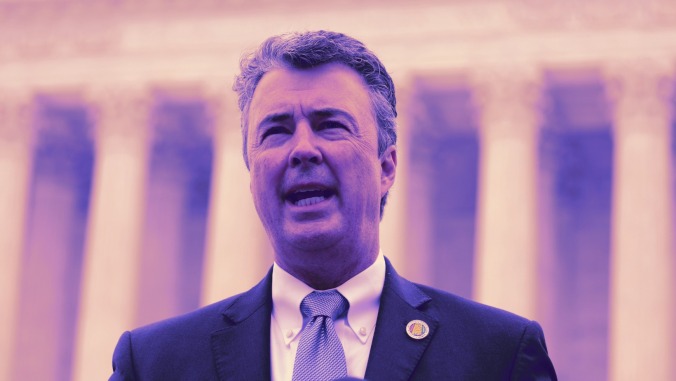Abortion Funds Sued Alabama’s Attorney General for His ‘Fringe’ Threats. But the Damage Was Already Done.
Alabama Attorney General Steve Marshall previously said helping someone travel out of state to get an abortion is a “criminal conspiracy.” Abortion funds—who have been unable to directly help callers—sued, and are awaiting a decision.
Photo: Getty Images AbortionPolitics Abortion
Even before Alabama imposed a total abortion ban following the Supreme Court’s Dobbs v. Jackson Women’s Health ruling in 2022, abortion funds said one in five abortion seekers in the state had to travel across state lines for care due to a range of barriers. Jenice Fountain, executive director of the Alabama-based reproductive justice group Yellowhammer Fund, told Jezebel for many of their callers, the closest abortion provider was hours away, and some couldn’t take the time off work to endure the state’s mandatory waiting period. So, with the guidance and financial support of abortion funds, they’d learn their options and often wind up traveling to somewhere like Atlanta.
Now, the closest state where in-clinic abortion is available is Illinois—and abortion funds can’t help or even render direct guidance on how to navigate the vast, complex legal landscape around abortion. That’s because in September 2022 and again in August 2023, Alabama Attorney General Steve Marshall (R) said helping someone travel for an abortion amounts to a “criminal conspiracy,” and threatened to prosecute those who “aid and abet” legal, out-of-state abortions. In July 2023, the Yellowhammer Fund and West Alabama Women’s Center (WAWC) filed a joint lawsuit against Marshall, represented by the Lawyering Project and ACLU of Alabama. A federal judge is expected to issue a ruling in the case as early as this month, which could carry implications for abortion funds across the country. Just to reiterate: Interstate travel for abortion is legal and constitutionally protected no matter where you live.
Jamila Johnson, an attorney with the Lawyering Project representing Yellowhammer, told Jezebel that Marshall’s threats are “fringe” and unlawful, even compared to the approaches of officials in other abortion-banned states. Texas abortion funds have been sued by anti-abortion extremist Jonathan Mitchell for “aiding and abetting” abortion, but last year, a federal judge ruled that they’re likely safe from prosecution, because Texas’ abortion bans apply to in-state conduct.
In Alabama, Marshall’s threats are an attempt to expand the scope of the state’s abortion ban altogether and trap people in the state. Unfortunately, his threats have thus far been successful. Since Dobbs, Fountain says Yellowhammer went from receiving about 100 abortion-seeking callers per week to about five—likely because Alabama residents believe abortion is no longer an option, period. Yellowhammer stopped providing abortion funding immediately after Dobbs out of legal concerns, and, especially in light of Marshall’s threats, is careful with the guidance it gives callers. “We have a script,” Fountain said. That includes giving callers “third-person information,” like suggesting what a different person in their position could do, or sharing passages from articles that detail how people in Alabama can seek abortions—“anything that isn’t directly advising.”
Even before Dobbs, Fountain explained, pregnant people in Alabama had to fear law enforcement involvement and possible criminalization if they so much as sought help with miscarriages. Tracking from Pregnancy Justice in 2023 shows Alabama recorded the highest number of pregnancy-related criminal cases in the country between 2006 and 2022. One woman was jailed for losing a pregnancy after being shot in 2019; another was jailed for trying to pick up pain medication from a pharmacy while pregnant in 2021. “It’s not hyperbole—it’s terrifying to be pregnant in this state,” Fountain said. “And they’re no longer just trying to ban abortion—they’re looking for any way possible to stop people from getting care they need.”
-

-

-

-

-

-

-

-

-

-

-

-

-

-

-

-

-

-

-

-

-

-

-

-

-

-

-

-

-

-

-

-

-

-

-

-

-

-

-

-








































